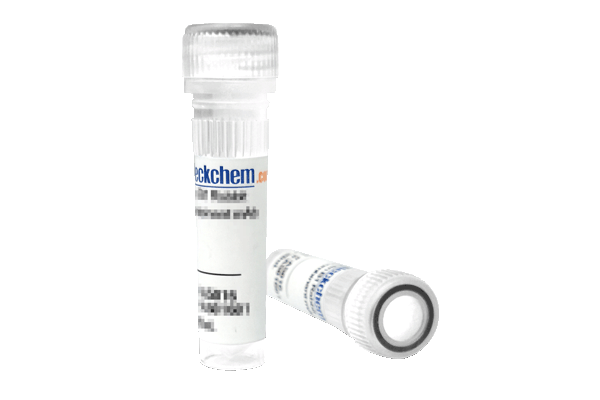- Inhibitors
- Antibodies
- Compound Libraries
- New Products
- Contact Us
For research use only. Not for use in humans.
Nivolumab (anti-PD-1)
Synonyms: BMS-936558, ONO-4538, MDX-1106
Nivolumab (anti-PD-1) is a genetically engineered, fully human immunoglobulin (Ig) G4 monoclonal antibody directed against the negative immunoregulatory human cell surface receptor programmed death-1 (PD-1,PCD-1) with immune checkpoint inhibitory and antineoplastic activities. MW : 143.597 KD.

87 Citations

17 Nobel Prize winners have used Selleck products
Shimon Sakaguchi
Nature Communications 2025,16, Article number:1325
David Baker
Dev Cell 2023, 58(20):2163-2180.e9.
David Julius
Cell 2017, 185-198.e16
Michael Houghton
Cell Chem Biol, 2020, 27(7):780-792.e5
Charles M. Rice
Cell 2018, 172(3):423-438.e25
Quality Control
Batch:
Purity:
99%
Protein concentration: 6.48 mg/ml
Endotoxin Level: <1EU/mg
99
Specificity
| Name | Citation | PD-1/PD-L1 interaction | PD-1 | PD-L1 | PD-1/PD-L1 | Others |
|---|---|---|---|---|---|---|
| GS-4224 | 0 | |||||
| INCB086550 | 1 | |||||
| BMS-1001 | 0 | |||||
| BMS-1166 | 8 | |||||
| PD-1/PD-L1 Inhibitor 3 | 13 | |||||
| BMS-1 | 13 | |||||
| BMS202 | 26 | |||||
| CA-170 (AUPM-170) | 0 | |||||
| SR 0987 | 1 | IL17,RORγt | ||||
| Spartalizumab (anti-PD-1) | 3 | |||||
| Camrelizumab (anti-PD-1) | 2 | |||||
| AUNP-12 | 3 |
Expand to Check More
1. "+" indicates inhibitory effect. Increased inhibition is marked by a higher "+" designation. 2. "✔" indicates inhibitory effect, but without specific value.
Mechanism of Action
| Description |
Nivolumab (anti-PD-1) is a genetically engineered, fully human immunoglobulin (Ig) G4 monoclonal antibody directed against the negative immunoregulatory human cell surface receptor programmed death-1 (PD-1,PCD-1) with immune checkpoint inhibitory and antineoplastic activities. MW : 143.597 KD.
|
|---|---|
| Features |
Human IgG4
|
| Targets/IC50/Ki |
PD-1/PD-L1 interaction
(Cell-free assay) 2.52 nM
PD-1/PD-L2 interaction
(Cell-free assay) 2.59 nM
|
| In vitro |
The cell binding ratio of 125I-Nivolumab and 125I-Nivolumab-DTPA to PD-1 is 13.78 ± 2.90% and 10.22 ± 2.62%, respectively. Conjugating of DTPA does not affect targeting of Nivolumab to PD-1 in vitro. |
| Cell Research |
Splenocytes were isolated from the spleens obtained from humanized PD-1 over-expressing mice following standard protocol. 125I labeled Nivolumab and Nivolumab-DTPA, respectively. To perform co-culture, 125I-Nivolumab and 125I-Nivolumab-DTPA (0.37 MBq/µg) were added to the freshly isolated splenocytes (1×106 cells) grown in 6-well plates, respectively. After incubation for 12 h at 4°C, cells were collected after rinsing three times with PBS. 125I radioactivity was determined in a gamma counter to evaluate their binding efficiency to PD-1. |
| In vivo |
In SPECT images, lesions with high 99mTc-DTPA-nivolumab uptake and relatively clear background are shown at 6 h. Thereafter, the suspected intestinal thickening in Gd-free T1WI is observed at 2 h after the addition of Gd-DTPA-nivolumab. |
| Animal Research |
Animal Models: CRC mouse models (highly expressed human PD-1 antigen) |
References |
Product Details
| CAS No. | 946414-94-4 |
|---|---|
| Isotype | Human IgG4 |
| Source | CHO cells |
| Sterility | 0.2 μM filtered |
| Formulation | 100 mM Pro-Ac, 20 mM Arg, pH5.0 |
| Storage (From the date of receipt) |
Store the undiluted solution at 4°C in the dark to avoid freeze-thaw cycles |
Comparison of Clones for
*Literature analysis of various clone (for this target) products available on the market shows that Selleck's selected clones are more frequently applied. (data until September 2024)
Tech Support
Tel: +1-832-582-8158 Ext:3
If you have any other enquiries, please leave a message.
Frequently Asked Questions
Question 1:
How to store the antibody?
Answer:
Store the undiluted solution at 4 °C in the dark. Freezing antibodies can result in a loss of activity caused by the freezing/thawing process. Diluting antibodies to working concentrations and storing at 4°C for more than a day should be avoided. Additionally, make sure to keep the antibody sterile. Under these storage conditions, your antibodies should remain active for up to one year and oftentimes longer.






































